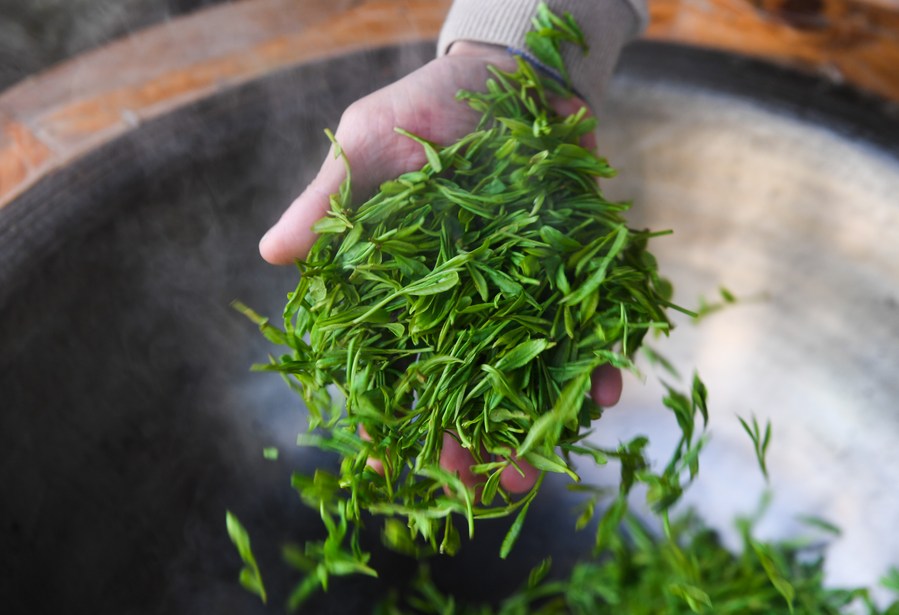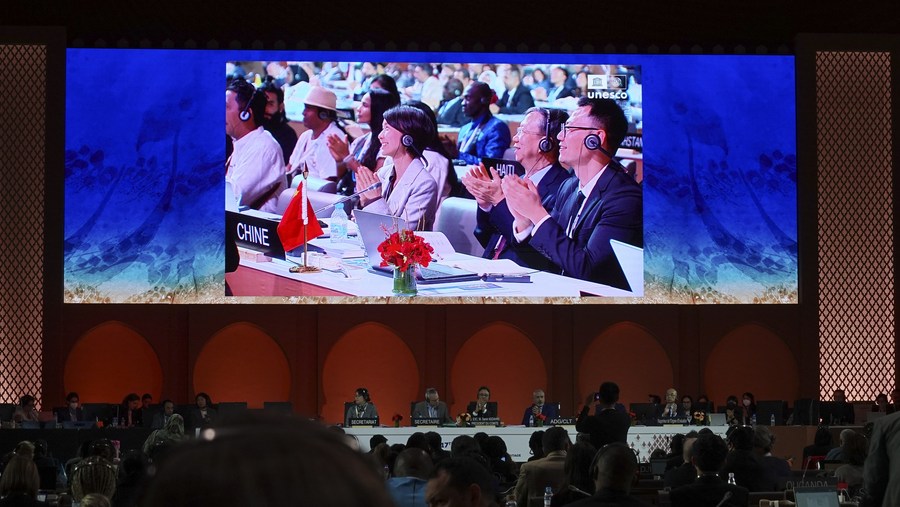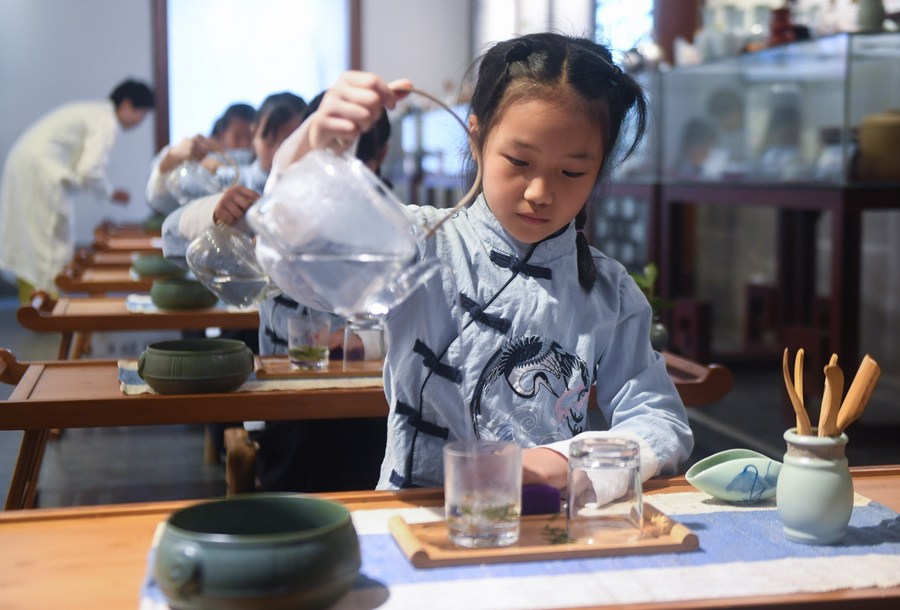Chinese tea's aroma suffuses streets of Morocco

A farmer stirs and roasts fresh Longjing tea leaves at Meijiawu Village of Hangzhou City, east China's Zhejiang Province, March 23, 2021.
On Tuesday, UNESCO added "Traditional tea processing techniques and associated social practices in China" to the Representative List of the Intangible Cultural Heritage of Humanity.
RABAT, Nov. 30 (Xinhua) -- Alami Hassan, a front-desk staff member at a hotel in the Moroccan capital Rabat, took out a silver-plated tea set from under the desk.
Every morning, the first thing on his agenda is to make a pot of tea, a strong one, and then refill the pot with water throughout the day.
"Moroccans are big tea drinkers," Hassan told Xinhua, adding that he refreshes himself after receiving guests.
Hassan is among the numerous tea lovers in the North African country, where the average annual tea consumption per capita exceeds 4 kg.
Most of the tea consumed in the country comes from China. In 2021, China exported around 369,000 tons of tea, or at least a quarter of the global supply, with Morocco ranking first among the importers, according to internet statistics company Statista.
In local supermarkets and stores, many cartons of tea are branded in Chinese or labeled in local languages, namely Arabic and French, to indicate the products' Chinese origins.

This photo taken on Nov. 29, 2022 shows a scene at the 17th session of the UNESCO Intergovernmental Committee for the Safeguarding of the Intangible Cultural Heritage in Rabat, Morocco. (Xinhua/Xu Supei)
Although the Moroccans love tea as much as the Chinese do, they make it differently. The Chinese prefer the original taste of tea, while each cup of Moroccan tea contains sugar and mint.
On Tuesday, the United Nations Educational, Scientific, and Cultural Organization (UNESCO) added "Traditional tea processing techniques and associated social practices in China" to the Representative List of the Intangible Cultural Heritage of Humanity.
The decision was announced during the 17th session of the UNESCO Intergovernmental Committee for the Safeguarding of the Intangible Cultural Heritage held in Rabat from Nov. 28 to Dec. 3.
Hassan was pleased the nomination was passed in Morocco, a major Chinese tea-consuming country.
"All Moroccans drink Chinese tea. We feel very happy that the traditional Chinese tea-making has been selected as an intangible cultural heritage," he said.

A primary school student learns to perform tea art in Lishan Town in Fuyang District of Hangzhou, east China's Zhejiang Province, May 20, 2022. (Xinhua/Xu Yu)
After the committee announced the decision, Hu Heping, China's minister of culture and tourism, said in a video sent to the session that the inclusion will help protect and preserve tea-making skills, improve the visibility of intangible cultural heritage, promote sustainable economic and social development, and deepen exchanges and mutual learning among civilizations.
"The Chinese government is ready to honor its commitment to conservation, work with UNESCO and other countries to pass on tea-making skills, and promote tea culture," Hu said, adding that China would like to promote exchanges with other nations involving tea.
Hassan said he is ready to learn more about Chinese tea culture.
"Likewise, the Chinese are also welcome to learn more about Moroccan tea culture," Hassan added.

